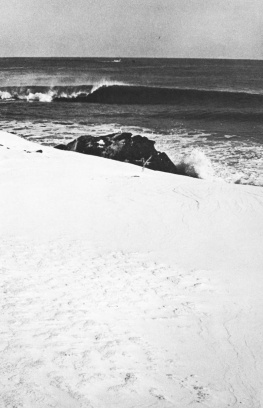

Copyright 2016 Katherine Towler
All rights reserved under International and Pan-American Copyright Conventions. No part of this book may be used or reproduced in any manner whatsoever without written permission from the publisher, except in the case of brief quotations embodied in critical articles and reviews.
Library of Congress Cataloging-in-Publication Data Is Available
Cover design by Kelly Winton
Interior design by Tabitha Lahr
e-book ISBN 978-1-61902-761-9
Counterpoint Press
2560 Ninth Street, Suite 318
Berkeley, CA 94710
www.counterpointpress.com
Distributed by Publishers Group West
10 9 8 7 6 5 4 3 2 1
Authors Note:
I have recreated events and conversations from my memories of them, journal entries and notes made at the time, and the help of others. While all the stories in this book are true, some names have been changed to protect the privacy of the people involved.
In memory of Robert Dunn and in gratitude for the community of writers he treasured in New Hampshire.
How is it they insist
that you must have a known address
who nowhere have a home?
Robert Dunn
The Penny Poet of Portsmouth
Table of Contents
Guide
CONTENTS

A round town, it was said that he lived on air, though he really lived on coffee and cigarettes. He was a union of unlikely oppositesone of the strangest and loveliest of people, one of the poorest and richest, one of the most sardonic and serious. He could be brilliant and intentionally obtuse, or quietly contained and defiant, all in the same moment. At first I was simply his neighbor, and we knew each other by proximity. Over time we came to recognize each other as fellow writers, secret rebels trying to get something down that speaks to others. Later I became a friend, in the fashion that he had friends. We traded conversation and the titles of books as we drank tea or wine. He let me in, but only a little, and only because he had no choice. In the end, I was someone indefinable to either of us, part family, part nurse, part surprised bystander. How I came to be that person and what it taught me is this story, though it is one that remains riddled with certain mysteries, just as his life remains a book of blank pages on which he left only the poems.

B arely a block long, Whidden Street comes to a dead end at the edge of South Mill Pond and has no real business being called a street. Houses pressed close together face each other across a strip of pavement not much wider than a hallway, their shuttered facades suggesting a scene from an antique postcard. In their mix of colors, cranberry red and white and mustard yellow, the older houses have the solid look of something that has been here a long time. Others are of a more recent vintage, rougher upstarts that match the broken pavement on their front stoops.
Our first night in our new house on Whidden Street, I stood at the window and gazed out at the rooftops bathed in the glow from the single streetlight. I had lived in other New England cities, but none of them had felt this old or this quirky, the very shape of the streets telling the story of the past. It was midnight, and I still hadnt found the sheets in the maze of boxes that surrounded me. The sound of bells tolling the hour made me pause for a moment in my frenzy of unpacking. Though the steeple was blocks away in Market Square, it seemed I could reach out the window and touch those solemn notes. They brought the night close and made the darkness familiar in an unfamiliar place.
The dank smell of the pond came in through the window, mud laced with a hint of fish, and in the other direction from downtown I heard the piercing note of a boats whistle out on the river. The hourly tolling of the bells and the traffic on the river would become the soundtrack of my new life, noises that would soon fade into the background, but on that hot night in June of 1991, when I finally arrived somewhere I would stay longer than six months or a year, they struck me as the essence of this place I could not quite believe I was going to call home.
For more than a decade, since graduating from college, I had wandered up and down the Eastern seaboard in a restless search for a job, a relationship, and a life that made sense. All too often, I had packed everything I owned into a hatchback and started over, certain that another beginning would be the answer. This time I wasnt making the move alone, and I was taking up residence in an actual house, not a one-room studio apartment. The man I was about to marry had driven a U-Haul truck loaded with both our possessions from Boston that morning and now searched through the mess of boxes with me, as exhausted and apprehensive as I was, both of us nervous and excited to discover where we had landed. In retrospect, our arrival in New Hampshire has a sense of inevitability, the moment when I finally stopped running, but that night as I sorted through our ill-packed possessions, I felt like I was standing in a doorway waiting to see whether I would step through to the other side.
We were woken at five-thirty the next morning by a very loud and raspy voice barking out the declaration, Gonna be a hot one. When I raised myself on one elbow and drew back the curtain, I saw a large, unshaven man standing beneath the window in the middle of the street. He wore paint-splattered work pants and construction boots. Beside him stood a petite woman in her sixties with a stack of newspapers in her arms. She handed him one and said, If it burns off.
Oh, itll burn off all right, he said.
The woman went back up the street, but he remained beneath our window with a coffee mug in one hand and the newspaper in the other, glancing from side to side as though expecting someone else to appear and continue the conversation. I would learn that Ed greeted the woman who delivered the newspaper like this every morning.
Fog hung over the pond in a milky sheen that gave the water the look of a clouded mirror. I made my way down the back stairs to the kitchen, thinking that even the weather here had an old-fashioned feel, the wispy fog seeming to trace the shape of tall ships coming into the harbor. The steps beneath my feet were worn down, hollowed into small depressions by nearly two centuries of use, and they were so narrow I had to descend carefully to avoid tumbling straight down the whole flight.
The existence of this staircase was one of the houses idiosyncrasies. It was only a few feet from the front staircase, which rose from the hallway right inside the front door. Why two sets of stairs were necessary in such a small house was a mystery. This had never been a grand residence, even in the 1800s, the sort of place that might require a second staircase for the maid. I would become used to making the mental calculationfront stairs or back?several times a day, a choice that seemed to link me to a host of people who had gone before me in this place.
I walked through the rooms strewn with random pieces of furniture, rolled-up rugs, and stray lamps, uncertain where to begin. It was then that I heard someone sneeze. Jim, I thought, still upstairs, but a moment later I heard him opening the refrigerator and realized the sneeze had come from a different direction. I crept to the window in the bathroom and peered around the edge of the frame. The profile of a woman was clearly visible behind a curtained window level with mine and only a yard away. She was setting a coffee mug on a table. It appeared that we were going to get to know our neighbors well.













